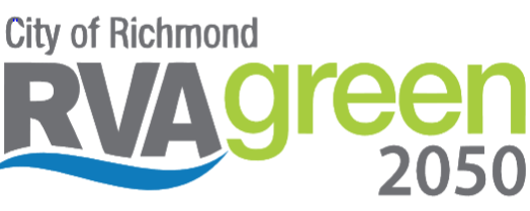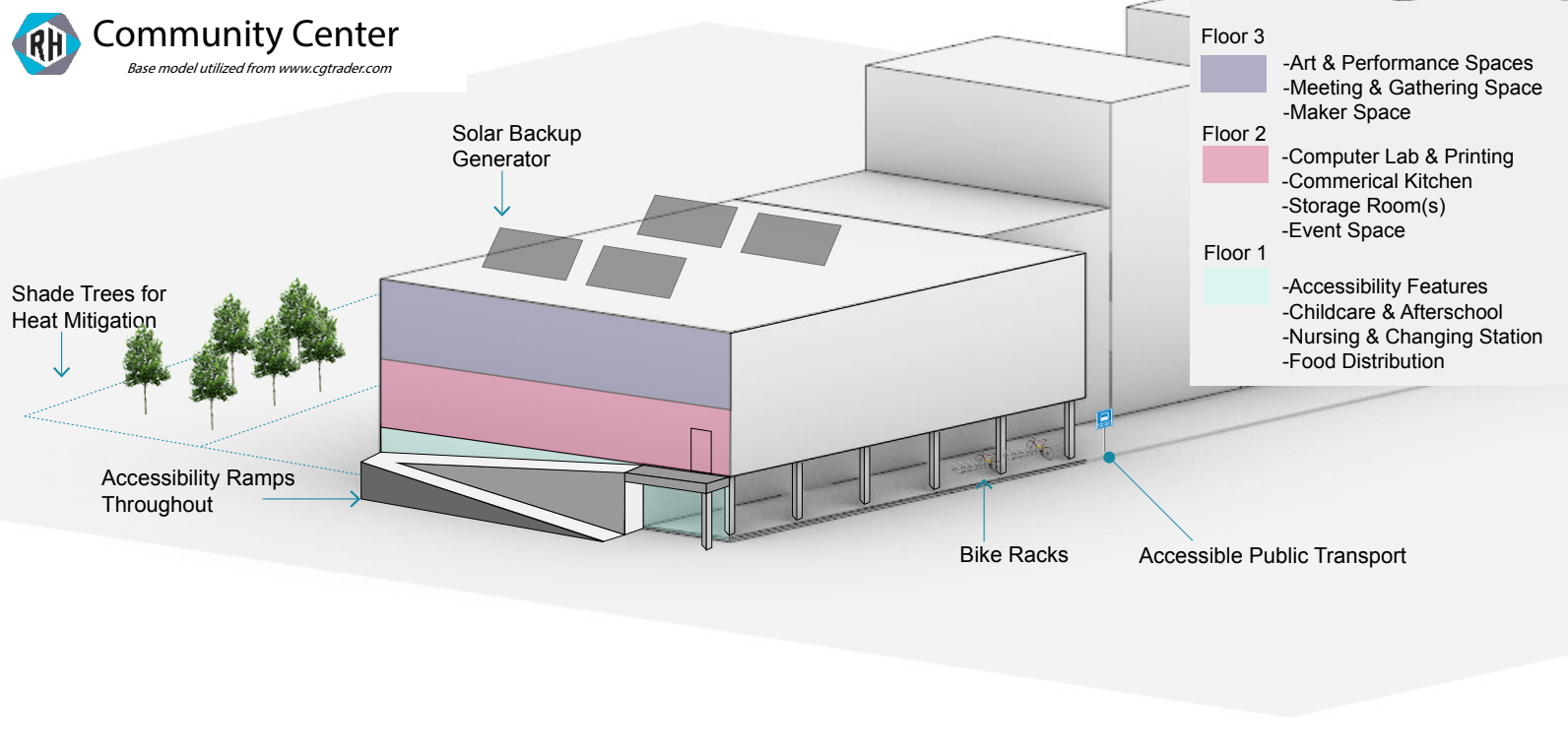
Resilience Hubs
Richmond's Community Strongholds for a Changing Climate
As our climate changes, communities face new challenges, from extreme weather to unexpected disruptions. In Richmond, we believe that preparing for these events means strengthening our neighborhoods from within. That's why we're developing Resilience Hubs—trusted community spaces designed to help us all prepare, respond, and recover, together.
What are Resilience Hubs?
Resilience Hubs are much more than just emergency shelters. They are community-serving facilities that are augmented to act as anchors, providing vital support and resources to residents before, during, and after disruptions like extreme heat, severe storms, floods, and other emergencies.
These hubs are envisioned as secure, accessible, and inclusive spaces that serve daily community needs while also being ready to coordinate resource distribution, provide essential services, and offer crucial support when our neighborhoods need it most.
Resilience Hubs Essential for Richmond
The RVAgreen 2030 Climate Equity Action Plan, specifically Pathway C-2.4, highlights the critical need to create neighborhood Resilience Hubs in frontline communities. This initiative is driven by core principles:
Climate Resilience for All: Climate resilience cannot be limited to people with expendable income and time. Richmond is committed to supporting all community members, especially those in frontline communities, with the resources and pathways they need to increase their climate resilience. Resilience Hubs are key to achieving this equity.
Dual Purpose: Daily Needs & Disaster Response: Inspired by frameworks like the USDN (Urban Sustainability Directors Network) Resilience Hub Framework, our approach prioritizes ensuring that these hubs serve daily community needs even beyond disaster response. By being active centers for community life, they naturally build trust and familiarity, making them more effective during emergencies.
Community-Led Power: A core principle of Resilience Hubs is shifting power to neighborhoods and residents. While local government and partners provide support, these hubs are primarily led and managed by community members, community-based organizations, or faith-based groups. This ensures they truly align with local needs and empower communities to adapt and thrive.
Addressing Root Causes & Enhancing Capacity: Resilience Hubs are designed to tackle the underlying issues that lead to disproportionate exposure and sensitivity to climate impacts. By strengthening communities' ability to adapt and connect, they enhance overall community capacity to face future challenges.
Your Partnership in Action
Resilience Hubs represent a significant step forward in making Richmond a safer, stronger, and more equitable city for all. As we work to establish and grow this vital network, your input and engagement are crucial.
We encourage you to:
Stay informed about the locations and services of developing Resilience Hubs in Richmond.
Participate in community discussions and planning efforts related to these hubs.
Share your needs and ideas for how these facilities can best serve your neighborhood.
Together, we can build a resilient Richmond where every community has the resources and support to thrive, no matter what challenges come our way.
Building Richmond's Resilience Hub Network
Our vision for Resilience Hubs in Richmond is taking shape through a collaborative strategy:
Identifying Community Facilities (C-2.4i): We are actively working to identify existing community facilities, such as community centers and libraries, that can serve as Resilience Hubs and crucial cooling centers for the community.
Providing Funding and Support (C-2.4ii): The plan includes providing dedicated funding to these identified facilities. This support will enable them to enhance their capabilities, ensuring they can effectively serve as resilience hubs, particularly for low-income, elderly, young, and populations experiencing homelessness.
Regional Collaboration with PlanRVA: The Office of Sustainability (OOS) is engaged in a vital regional project spearheaded by PlanRVA, an independent regional planning organization. This collaboration aims to develop a comprehensive plan for the implementation of Resilience Hubs across the Richmond Region. This detailed strategy will address critical aspects such as hub location, resource allocation, community engagement, and long-term sustainability to ensure these hubs effectively serve their intended purpose across our communities.
Resilience Hub Locator
In the face of increasing temperatures and heat events, the City of Richmond is committed to ensuring all residents have access to crucial resources. See the City’s press release to learn more.
As Richmond experiences another period of extreme heat, access to cooling resources is vital for our community's health and safety. The Richmond Resilience Locator, an interactive tool proudly presented by the City of Richmond Office of Sustainability, is designed to help you quickly find nearby places to find relief and build resilience against the impacts of a changing climate. Explore the map to locate community pools, air-conditioned libraries, dedicated cooling centers, and emergency shelters – all marked with clear icons to guide your way and help ensure a safer, more prepared Richmond for everyone.
If you would like to nominate a new location for a Resilience Hub, email rvagreen2050@rva.gov.
Resilience Hubs in Action: Lessons from New Orleans
Cities across the U.S. are developing Resilience Hubs, learning from past experiences and proactive planning. New Orleans provides a compelling example of a city deeply committed to building community resilience following significant climate disruptions.
Post-Hurricane Katrina, New Orleans recognized the need for community-led support systems beyond traditional emergency shelters. They have developed a network of "Community Resilience Centers" (Community Lighthouse) that embody the principles of Resilience Hubs:
Dual Functionality: These centers serve as vital community resources year-round, offering services like health clinics, job training, youth programs, and food assistance. This consistent daily presence builds trust and ensures residents know where to go and who to rely on during an emergency.
Community Ownership: Many of these centers are run by local community organizations, empowering residents to lead their own resilience efforts. This bottom-up approach ensures services are culturally relevant and truly meet the specific needs of the surrounding neighborhoods.
Emergency Activation: When a storm or other disruption threatens, these centers swiftly transition to provide crucial emergency services, such as charging stations, food distribution, cooling/heating, and information dissemination, all within familiar community settings.
The positive impact in New Orleans is evident in the strengthened social fabric of neighborhoods and an enhanced ability to cope with recurring climate challenges. By focusing on both daily needs and emergency readiness, New Orleans demonstrates how Resilience Hubs can be effective pillars of community strength.







